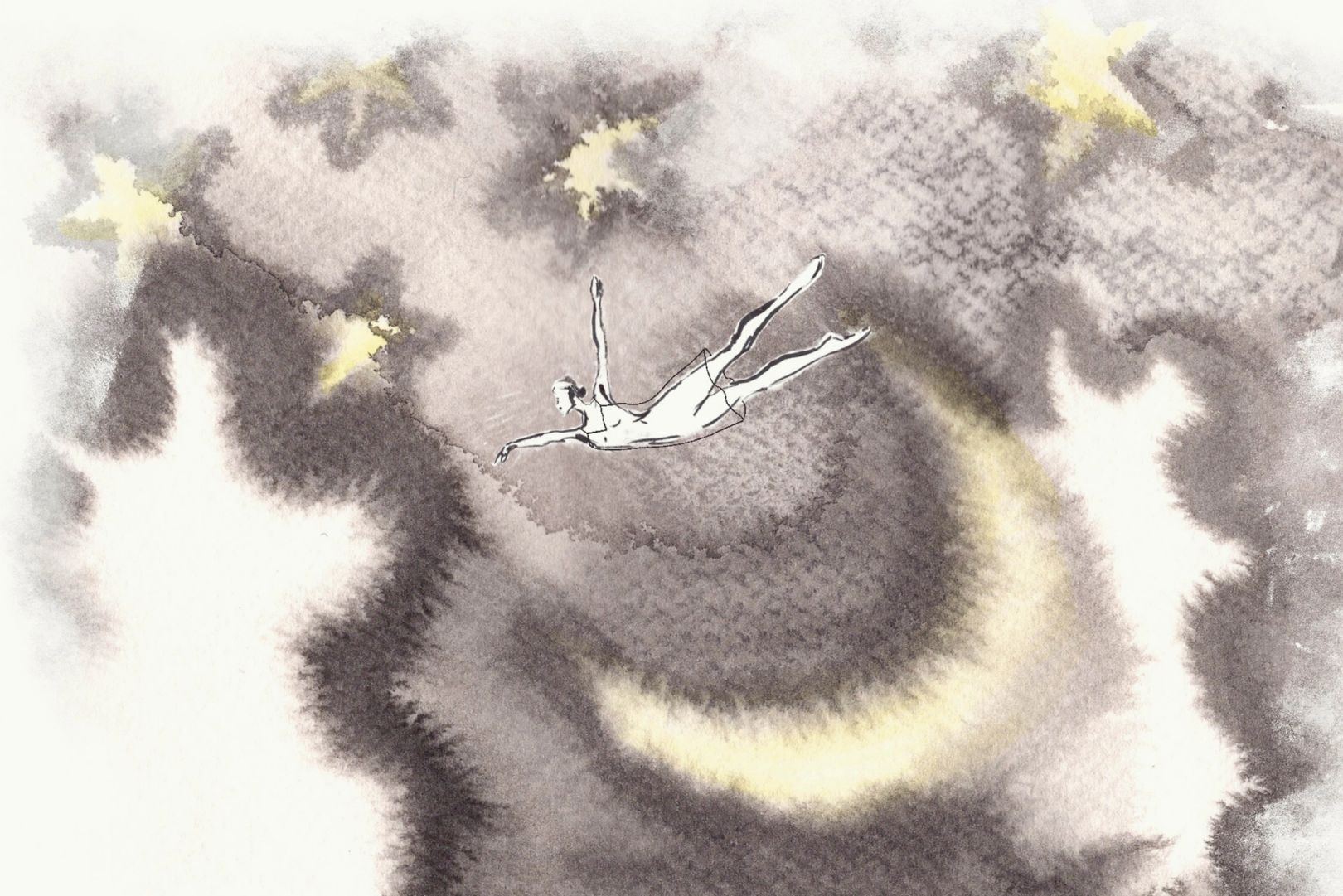
Sleep's house
- Words By Jane Haynes
I am not writing under my professional identity as a Jungian psychotherapist but as a “femme sage” who has seen the sun rise around 20,000 times. With each one, as we open our curtains to receive the new day, we pull down the shutters on our nocturnal language of sleep. Sometimes I like to think of myself as a kind of sagacious, nocturnal midwife — delivering dreams into our waking lives.
Who is the author of our dreams? Who do they belong to? Our only conscious actions can be to try and remember them, but dreams are as skilful at trapeze as a Cirque du Soleil artist. We don’t know if babies dream because they don’t have the language to tell us, but dog limbs visibly shake and tremor in what can only be interpreted as a dream of the chase.
Our night-time visions lead us on trails of erotic vagrancies and unkind betrayals, but that doesn’t mean we have to take any responsibility for them on waking up. Their thrills fade with the dawn, unless we wrestle to hold them in memory, or record them in a dream journal. With nightmares, the terrors of standing on multiple vortexes of extinction can wake us up with a palpitating heart. They have the power to hold us in a deadly thrall in the same way as Keats’ knight who cannot escape a vision of his own demise:
"I saw their starved lips in the gloam,
With horrid warning gapèd wide,
And I awoke and found me here,
On the cold hill’s side."
Dreams employ the slipperiest narratives, which are more bizarre than any riddle. Neuroscientists tell us about the ways that our neurons react during this time, but a remembered dream, or an actual terror of a nightmare, is only a fragment of the frantic nocturnal activities of our brain.
Still, nobody has been able to answer the most important question of all: why do we dream? Why do they take us to realms where we are powerless over the content or shape of the narrative? Maybe there’s a different answer for each of us…
Sigmund Freud’s 1900 publication of The Interpretation of Dreams is regarded by many as the most important contribution to the areas of dream psychology and philosophy. However, there are those that find his overriding obsessions with reductive sexual interpretations problematic. Writers such as Jack Kerouac, William S. Burroughs, Vladimir Nabokov and Henry James all kept lifelong accounts of their nocturnal visions. They believed their dreams should not be overly analysed, but instead used to complement our more repetitive daytime selves.
Although dreams are most welcome in a consulting room, they can make for tedious listening. For me, they are like a black refuse sack: I’m fascinated by what we throw away through our censored thoughts.
When I am working with a client, I imagine myself as a fox with a scent for carnage or a remnant delicacy. When I am deciphering a nightmare, I visualise myself with my snout trapped into an incinerated can lid. I encourage all of my clients to be playful and subversive, become disinhibited with their language and give a joyful voice to any forbidden expletives.
I am utterly convinced of the benefits to our lives and mental health of exploring our dreams and nightmares. I encourage the novice to check out the night sky and become more familiar with the multiverse before they close the curtains. The next step is to ask the universe, as in prayer, for the sacred gift of a dream. Always make sure a piece of paper and pen or journal are next to the bed for any nocturnal scribbles. I have started whispering into Voice Memos on my phone during my half-sleep state of recall. It’s amazing how many times I forget to replay it until something triggers me to tune in, sometimes days later, to the account of a bizarre dream, or disturbing nightmare... Oh Heavens — what will AI do to our dreams?
Jane Haynes is a writer and relational psychotherapist who will be curating literary salons to complement patient care at the newly opened clinic centralhealthlondon.com. She is the author of the PEN Ackerley Prize-shortlisted Who is it That Can Tell Me Who I Am? (Little, Brown) and If I Chance to Talk a Little Wild (Quartet Books).
